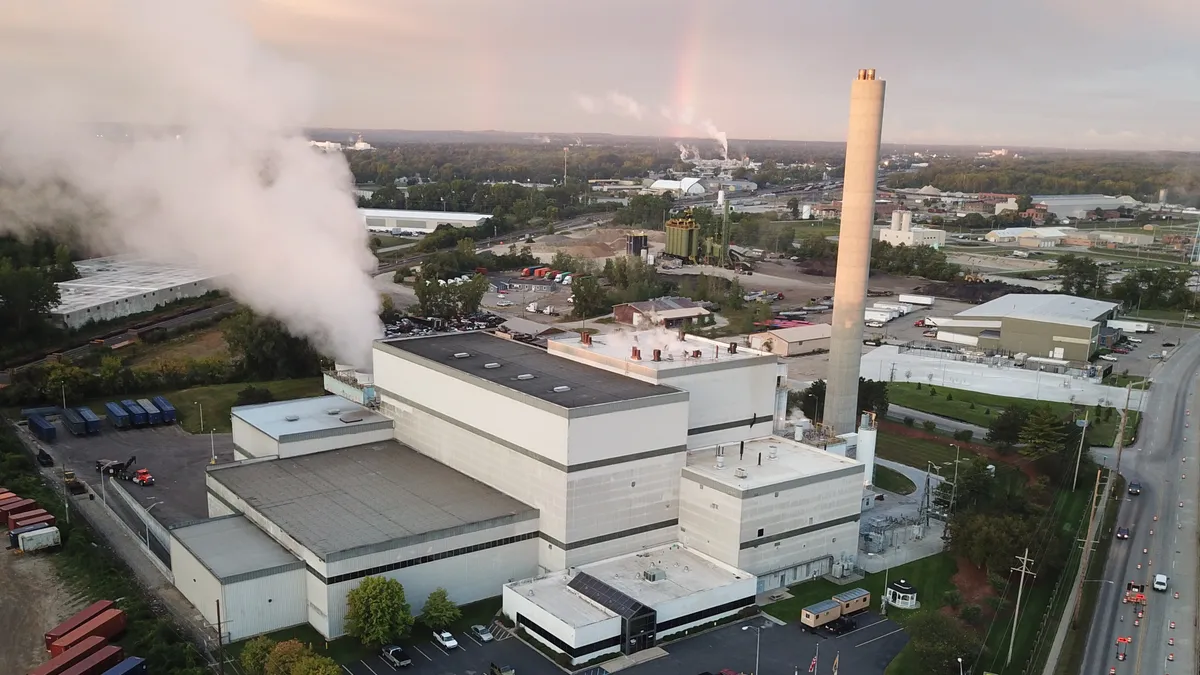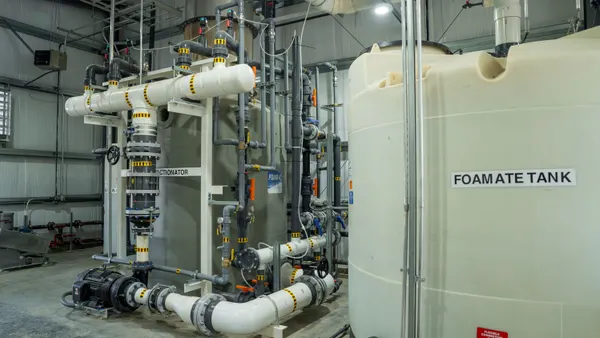Dive Brief:
- Kent County, Michigan, recently transferred operations of its mass burn combustion facility in Grand Rapids to Vicinity Energy with a contract worth an estimated $120 million over a 10-year period. The contract includes the option for two 5-year extensions.
- Vicinity also operates the local steam heating system in Grand Rapids. It was among five interested bidders — including Minnesota’s Great River Energy and European company Urbaser — for the facility after Covanta notified the county in 2021 it would not be renewing its contract.
- The county plans to invest an estimated $40 million in capital projects to preserve the facility’s life for the 20-year time frame. It also aims to reduce landfill disposal 90% by 2030 and is pursuing plans for a “sustainable business park” to advance those efforts.
Dive Insight:
While some related waste-to-energy facilities in other states have closed or faced financial pressures in the past year, this contract is the latest example of how operators think they can have a long-term future with the right conditions.
Kent County was facing the combination of dwindling landfill capacity and ongoing population growth in western Michigan. A recent report from Gershman, Brickner & Bratton showed the county generates an estimated 612,000 tons of MSW per year and 75% of that could be diverted from landfill disposal. The new business park is slated for land that had been set aside for potential landfill expansion. It is expected to include mixed waste sorting and anaerobic digestion operations from a joint venture between Anaergia and Continuus Materials that would have the ability to handle around 400,000 tons annually. Final approval for that project could occur later this year.
The WTE site can handle upward of 200,000 tons per year. Dar Baas, director of the Kent County Department of Public Works, said the region intentionally pursued this project in the 1970s as a way to minimize landfilling, which he views as “an old technology” that should be phased out. While the pending business park can help divert a significant proportion of disposal volumes, it won’t eliminate them. The financial and environmental costs of long-distance exporting to other landfills is not considered a good option, whereas the WTE site is centrally located.
"I believe that we're really poised to be able to address future need because we're still seeing growth,” he said of the region.
Another helpful factor is that the county has a long-term power purchase agreement with Consumers Energy guaranteeing the sale of energy for 8.2 cents per kilowatt hour into 2039. Such agreements have become less common for WTE facilities around the country.
The county expects to save $1 million per year in its new contract, in part because Vicinity already has operations in the area. Tip fees are expected to stay the same this year. Vicinity, which was created when private equity firm Antin Infrastructure Partners acquired Veolia North America’s district energy assets in late 2019, operates similar networks throughout the country.
Jesse Douglas, vice president and general manager of Vicinity’s Grand Rapids operations, said that many of his local team members have familiarity with the WTE facility and some had worked there before. Veolia previously operated multiple U.S. WTE facilities before completing the sale of that portfolio to Covanta in 2010. While Covanta (via its predecessor, Ogden-Martin Systems) constructed this particular site and operated it for 30-plus years, the WTE expertise within Veolia was broadly applicable, Douglas said.
The steam heating network (which traces its roots back to Thomas Edison in 1888 and was once owned by the county) is no longer linked to the WTE site, but Douglas sees “potential in the long run for interconnection of the two systems” as is the case in other cities. Vicinity chose to pursue this contract because "it was really a growth of an existing customer relationship,” and his company’s leadership’s liked "the county's commitment to this asset for the long term.”
The Kent County Board of Public Works approved a short-term transition agreement for Vicinity to get acquainted with the site before finalizing the contract last fall. Looking ahead, Baas said “a major overhaul” will occur in the next few years, including replacement of the site’s waste cranes, control systems, baghouse and scrubber systems.
As for whether Vicinity might bid on similar operating contracts in the future, Douglas left the door open.
“Where there are opportunities to take over similar facilities, especially in and around the networks we already serve, I could see us going after those,” he said, while noting the current focus is on adapting to the Michigan location. "This is a great start.”












